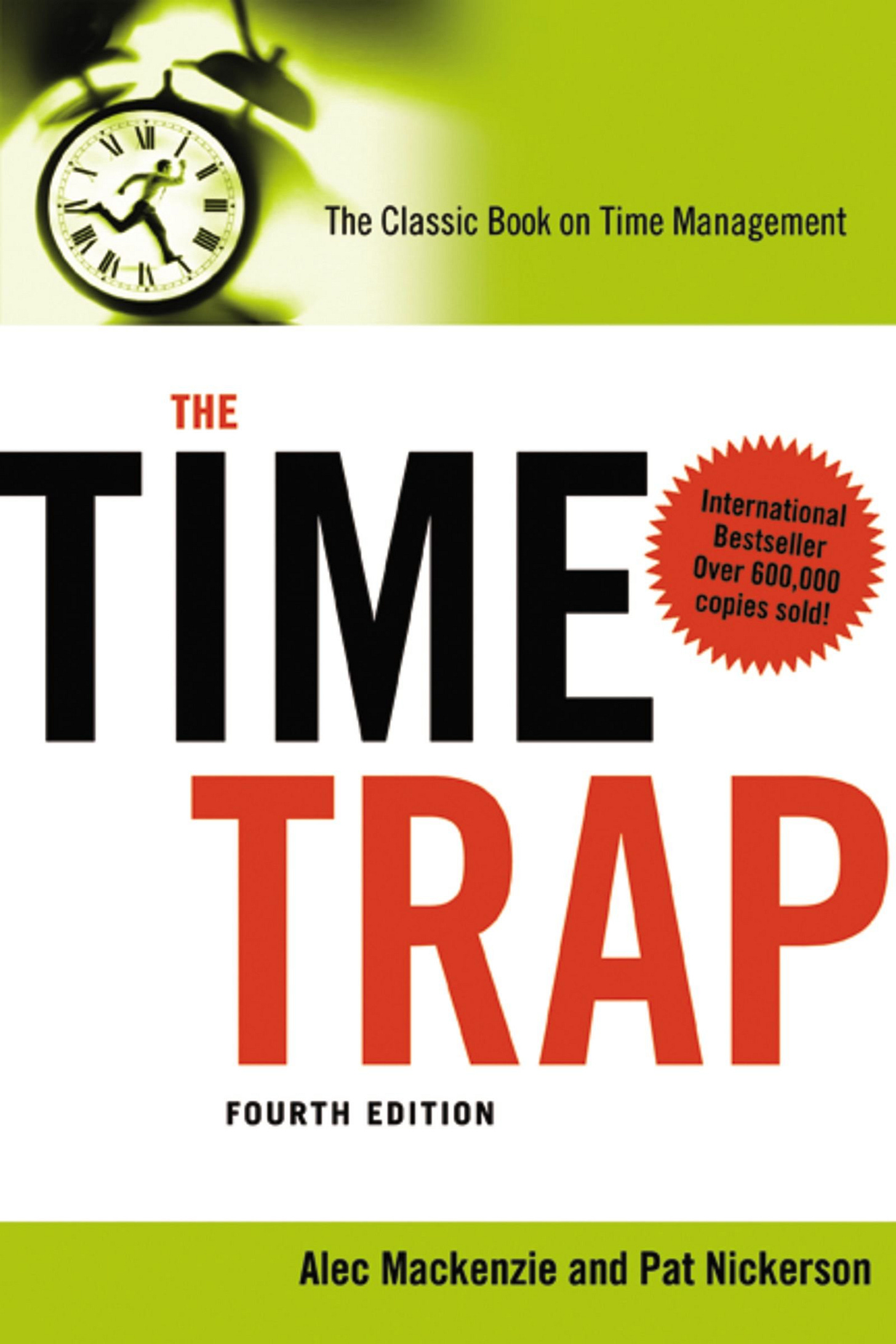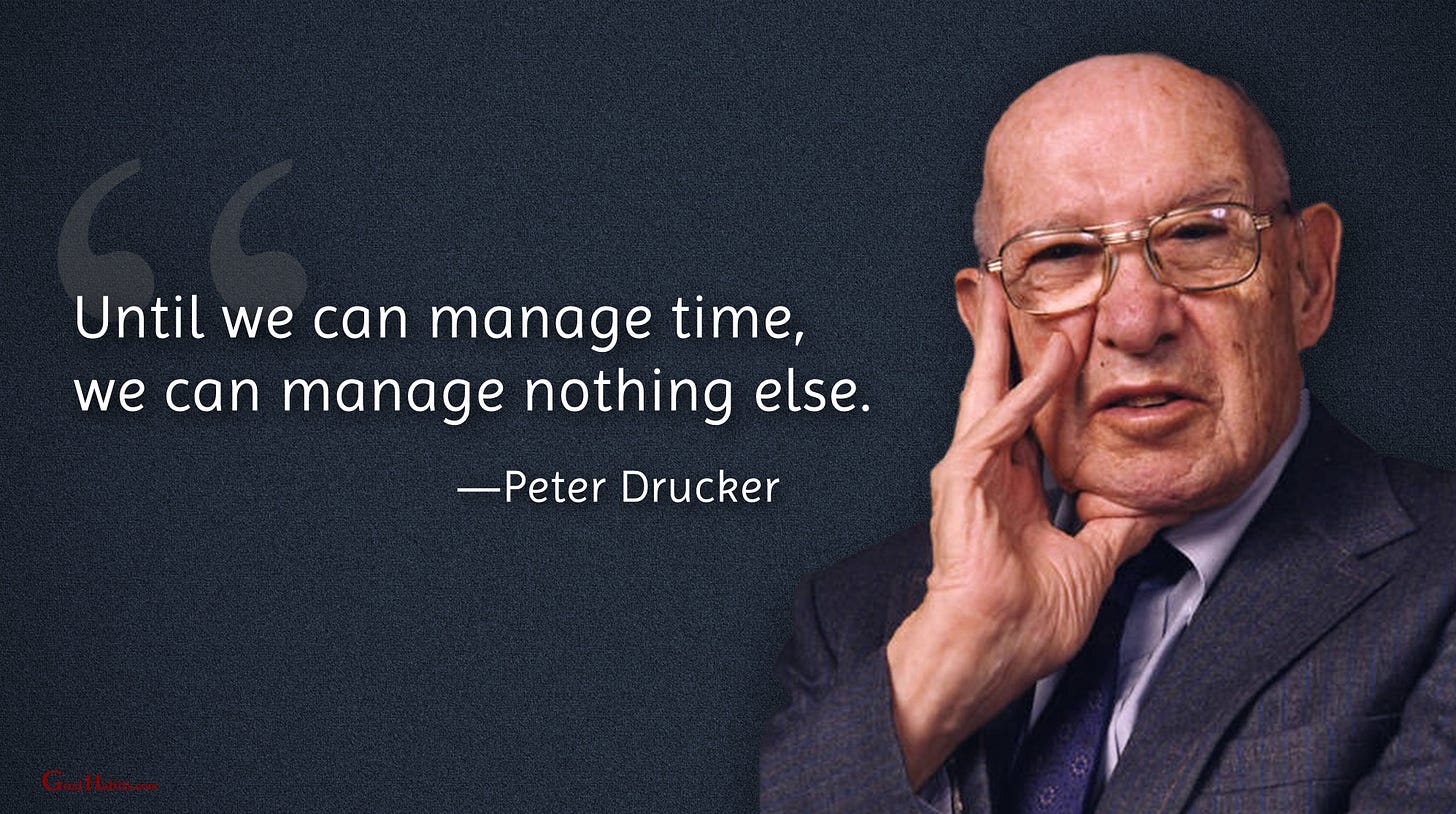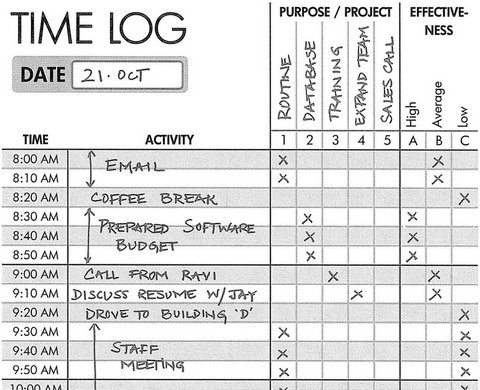How the Heck are You Doin' Managing Your Time?
I bet it controls you as much as you control it (or more)!
Before we jump in, a quick comment. As some of you know, my consulting firm, amongst several other things, helps bring together prospective franchisees with franchisor clients. The goal is to find great matches that have a high potential to complement (“add value for”) one another over a long period of time. While we have done this for years, I have never seen a period of time where more people were interested in owning their own business (taking control of their professional life and their future) rather than working a for someone else. I understand this given all of the issues with staffing, employments, layoffs, workload, etc. we have seen over the past two years. What I find more surprising, is when speaking with franchisees (owners) I have helped find and buy their own business over the past 2-3 years, to a person (that’s 100% of them) they are extremely happy that they made the decision to invest in themselves. Despite the normal (and Covid-related) challenges of doing their own thing, as a group they have no regrets. This certainly says a lot about the current mindset on entrepreneurship, but it also should be eye-opening for employers that are working hard to attract and retain high quality team members. The world has changed and the challenges may be greater than ever in the world of “people”.
If you enjoy (and hopefully benefit from) All Things Retail, please consider subscribing to our premium edition.
Sponsored Content
Do you ever feel like there's not enough time in the day?
I began thinking about (dare I say “studying”) the principles of time management many years ago. I was directly overseeing a large group of stores, in a turnaround situation, and the task burden was immense. In many cases these perceived “needs of the business” became distracting to the true priorities of fixing both the topline and bottom line of the district I was leading. I was in my mid-20’s and knew I needed help. Since there was no Google at that time, I headed to the bookstore and found The Time Trap by Alec Mackenzie. It was a game-changer for me in terms of how to take control of my own time and it has been a bestseller since (no, I am not being paid to recommend this book). I have been such a believer in The Time Trap that I have bought and given probably 200 issues to team members over the years. Frankly, you will be better off reading this book than my content below (but mine is shorter and you can do both!).
My take on time management has evolved since I first read The Time Trap, but the premise remains the same. “We all get the same 24 hours – so why do some people seem to achieve more with their time than others? The answer: good time management.”
Time management is the process of organizing and planning how to prioritize and allocate your time between different tasks. Done properly, you'll end up working smarter, not harder, get more done in less time, and most importantly, add the most possible value to your business.
Working Smarter to Enhance Productivity; The Benefits of Good Time Management
There are plenty of benefits to managing your time properly. They include:
Improved productivity and efficiency.
Reduced stress.
A greater sense of accomplishment .
Setting the proper example for your team.
Perhaps most importantly, increased focus on and execution of the true priorities of your business.
So where should you start in terms of gaining better control of your time? Read on:
Determine how you’re currently spending your time.
I know, this sounds a bit dopey, but it’s not only important, it’s eye-opening! Take a week to figure out that you are truly spending your time on. Create a time-log and write down what you have spent your time on literally every 30 minutes. If you really want to understand how you are spending your time, add the task “purpose” and “effectiveness” to the log. Here is a simple example:
As you review this log after one week, it will begin to become clear where you are investing time in value-add tasks, where you may be wasting your time, and even what time of the day you are most productive. You have now created the base data that will allow you to better prioritize your time, including the potential elimination of time-wasters.
A daily to-do list is a must.
I actually use two to-do lists. The main list includes everything I want to accomplish over the foreseeable future, with priorities attached (read on to the Eisenhower Matrix to better understand prioritization). I then use tasks on this list to create my daily to-do list. The daily version is the key as that is what I expect to accomplish in the next 24 hours.
You should create your daily list at the end of the prior day’s work (“close to open” in retail-speak). This way you are prepared to jump into the new day as soon as you begin work. Writing down your tasks and goals for the following day will prevent you from lying awake at night tossing and turning over trying to remember what needs to be accomplished. It also allows your subconscious goes to work on your plans while you are asleep, which means you may wake up in the morning with a greater focus and even new insights for the day.
Where you write your list is up to you. I use Google Calendar to create time blocks for tasks and “all day” events as reminders. I use color coding for subject matter but others use color coding for identifying priorities. I handle my priorities by placing the most important items in the mornings (I am a “morning person”) and lower priority tasks later in the day. Here is an example of what this may look like:
Use what is most comfortable for you. An online app or program, a calendar, a pen & paper…it doesn’t matter. What does matter is that you become disciplined to create a daily to-do list.
Keep reading with a 7-day free trial
Subscribe to All Things Retail to keep reading this post and get 7 days of free access to the full post archives.







